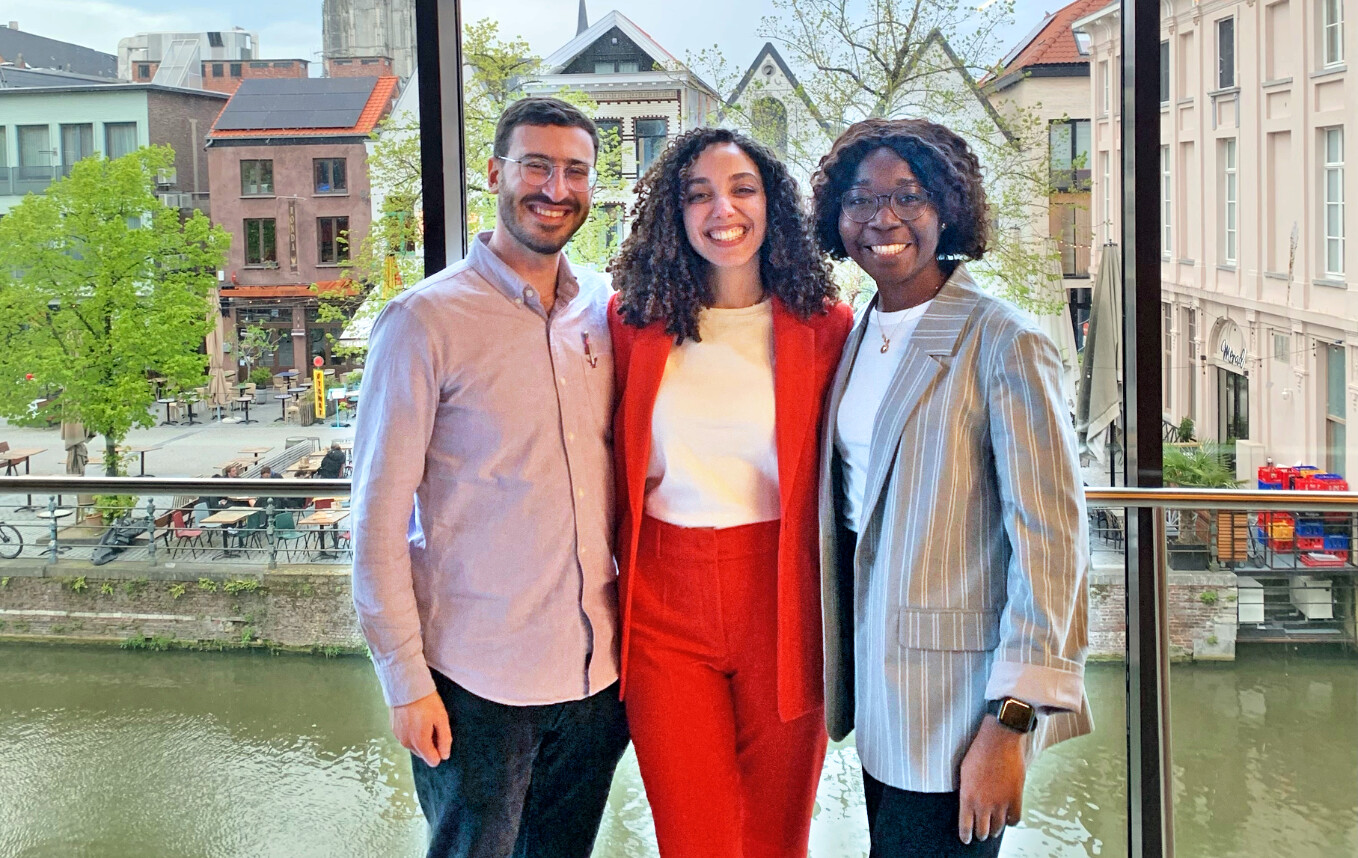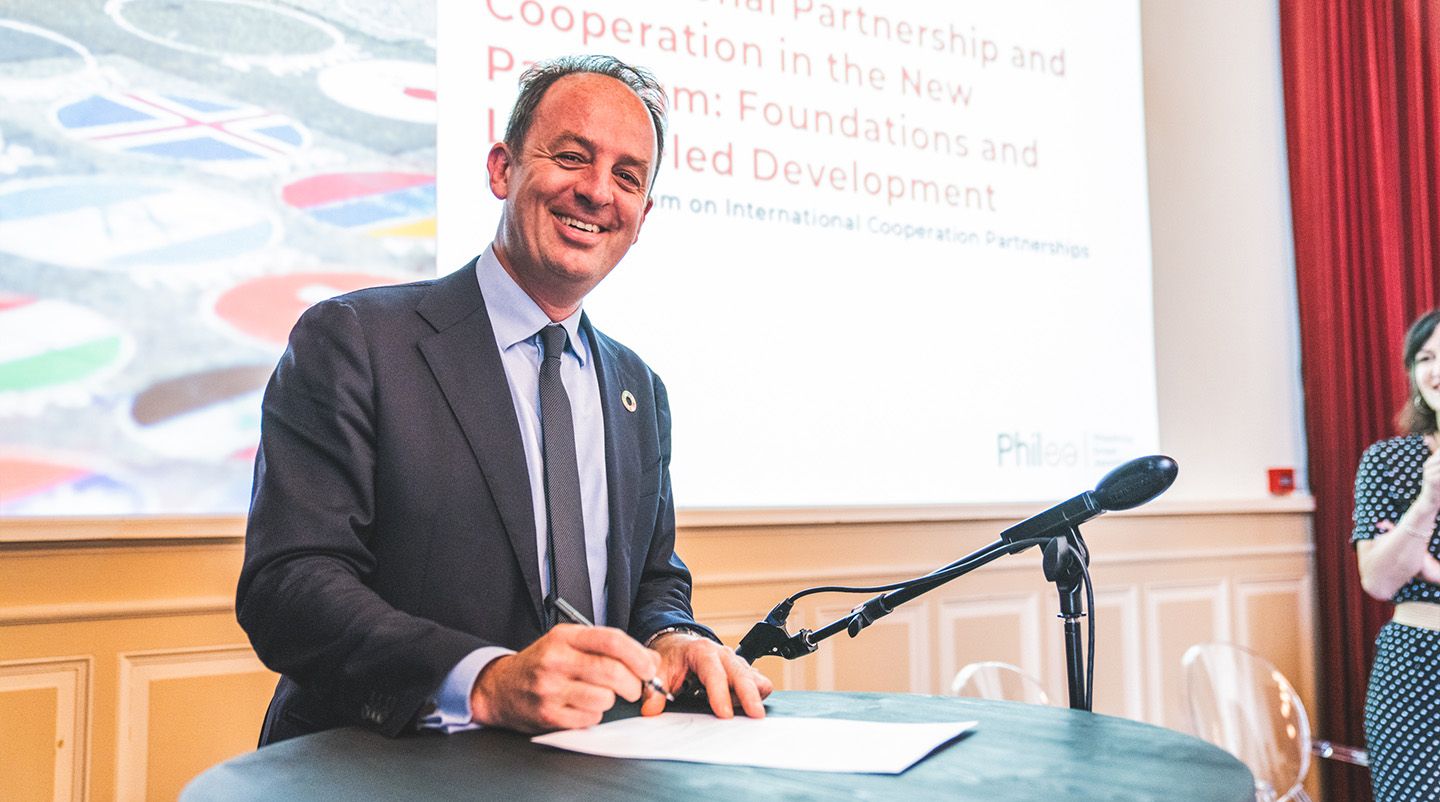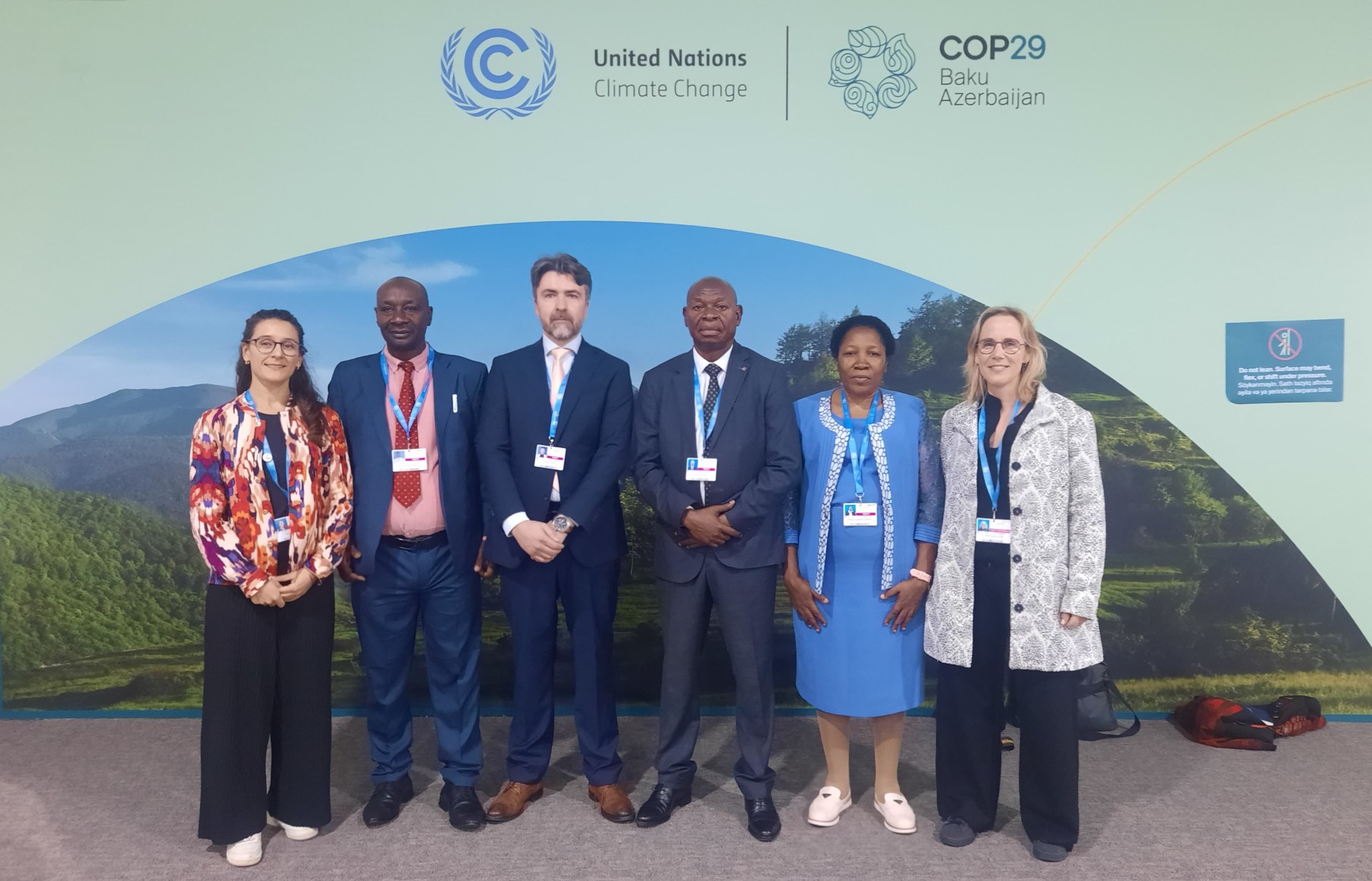Decent work for better social protection

Decent and fulfilling work provides an income and social and financial stability. An income enables people to support themselves and their families, making them less dependent on social assistance or other forms of support. In other words, someone working is less vulnerable than someone not working.
The International Labour Organisation (ILO) considers work as decent if “it involves opportunities for work that is productive and delivers a fair income, security in the workplace and social protection for families, better prospects for personal development and social integration, freedom for people to express their concerns, organise and participate in the decisions that affect their lives and equality of opportunity and treatment for all women and men”.
Jobs – Rights – Protection – Dialogue
In his projects, Enabel addresses four aspects to achieve decent work for all.
First, creating jobs. In doing so, Enabel focuses on small and medium-sized enterprises and works across the entire sector (value chain) to which they belong. Through training and retraining, job seekers are prepared for the labour market. And we guide employment services to work more efficiently and better respond to labour market needs.
Workers’ rights are a second aspect. Enabel contributes to the regulatory framework in partner countries and strengthens relevant services such as labour inspection.
A third aspect is the social protection of the (vulnerable) workers. Through awareness-raising and training, workers are made aware of the importance and benefits of health insurance.
Finally, promoting labour dialogue is a last important aspect in Enabel’s approach. Underlining the importance of the labour dialogue, involving the parties concerned and creating the conditions in which that dialogue can be established are the most important aspects of our work.
National and international partners
Enabel works with a whole range of partners from different backgrounds, all of whom have particular expertise in the various aspects of decent work and social protection: international organisations such as ILO and the East African Community, trade unions and mutual insurance funds, employment services, universities and research centres.
Target group: 2 million people
The 5-year ‘Decent Work and Social Protection’ thematic programme of the Belgian international cooperation targets three countries: DR Congo, Uganda and Rwanda. In each country, projects targeting young people and women aged between 16 and 30 are under way.
In summary, it aims to inform more than 2 million people about labour standards and workers’ rights, and social protection. 60,000 people will get better social protection and 30,000 will see their rights at work strengthened. 20,000 young people are supported to find full-fledged jobs. Higher wages, better working conditions, better social protection, stronger public services. Because the projects are in three countries, it is worthwhile sharing experiences as the initiatives can inspire each other even during project implementation in tackling issues and using opportunities.
In the DR Congo, cooperation involves the employers’ association Federation of Businesses of the Congo (FEC) and the National Employment Office (ONEM). Activities in Kinshasa, Kolwezi and Lubumbashi focus on women and youth, in agriculture, domestic work, taxi services and informal (cobalt) mining.
In the west of Uganda, in Rwenzori and Albertine, the emphasis is on agriculture, with coffee and cocoa, major export products. Special attention is also being paid to tourism, which has shrunk by 60% due to the corona crisis, and the green economy, all sectors with great growth potential.
Finally, in Rwanda (Kigali, Rubavu, Karongi, Rusizi, Nyamasheke), mining, construction and trade were chosen, sectors with growth potential but where working conditions could be improved (contracts, occupational health and safety, fair remuneration, worker representation, social security, etc.). Collective bargaining agreements, among others, are to improve labour relations between employers and employees.





